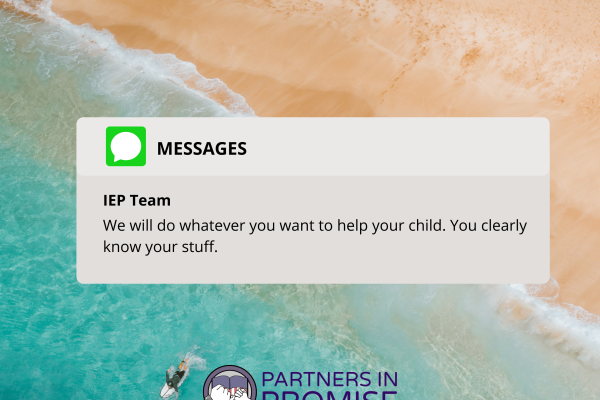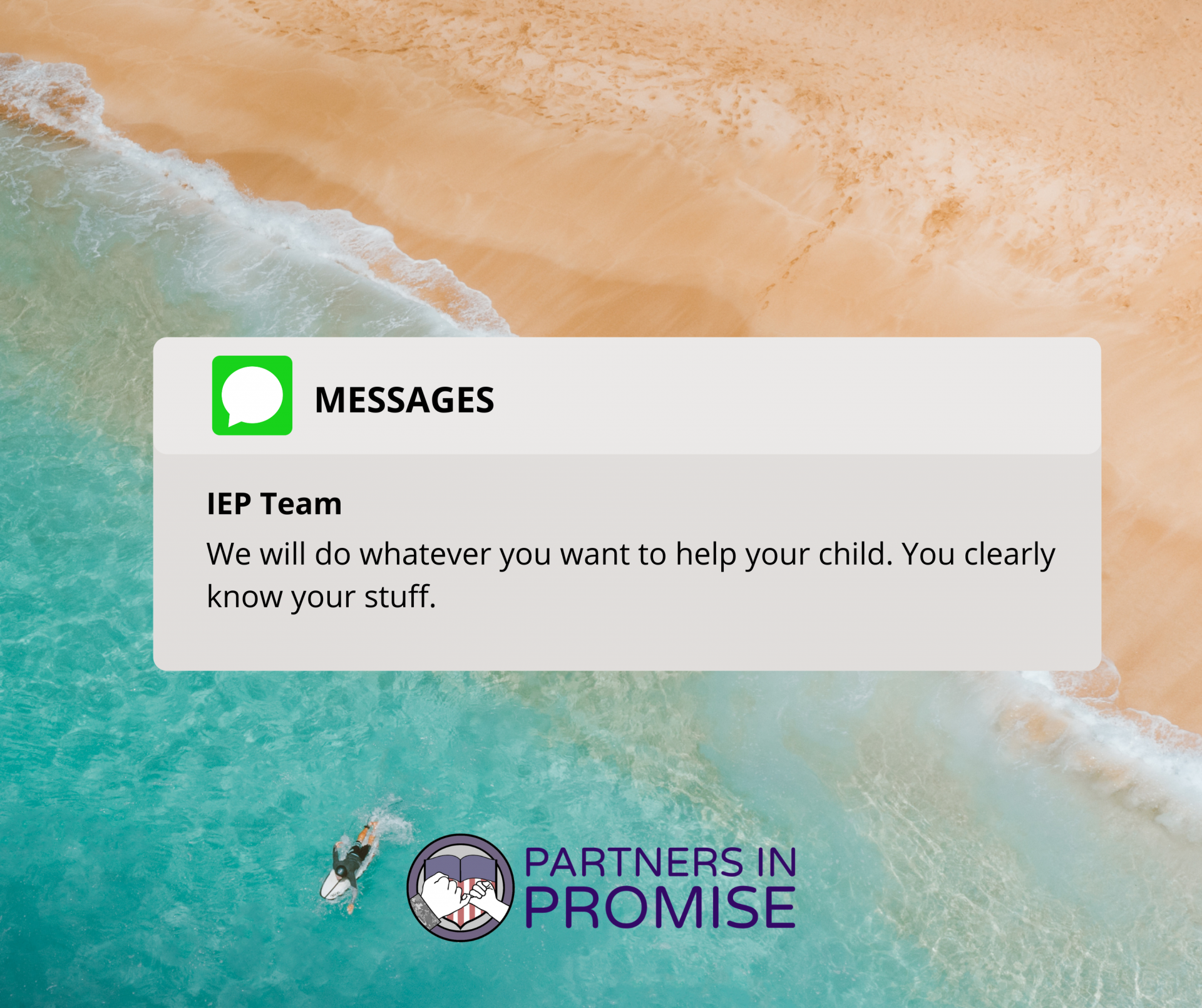
Are you in over your head in IEP Meetings?
| IEP, IEP Meetings

IEP Meetings – An Advocate’s Point of View
By Marianne Young
One tip: Watch out for copy/paste IEPs!
Despite three years of special education, and the teacher’s best efforts, my son was still unable to read more than 30 sight words or recognize all the letters in his own name. He was still counting on his fingers and every day was a struggle. He was no longer the happy boy that woke up singing in the mornings. I was beside myself and everyone was stumped, until my husband and I were simultaneously struck with an epiphany…
Our son has dyslexia.
Suddenly, everything made sense and I was relieved but this realization is also where our battle with the school district began. Everything was a fight, even getting them to do an evaluation for dyslexia. I would read, prepare, attend meetings only to leave frustrated or to be eventually let down, over and over again. I cycled through fire and fury to depressed and hopeless. It was awful and I will never forget the feeling.
When the dust settled, the district provided everything I had asked for: year-round private multisensory tutoring three days a week for reading, twice a week for math, a one-to-one paraprofessional, assistive technology and more. The fight had ended and I knew my son was going to be okay, but I was irrevocably changed. I knew that there were many, many more children and families suffering through the same broken process. Since then, I have made it my mission to help others navigate the educational system and IEP process. I have worked as a special education advocate for five years and have picked up many tips and tricks to effective advocacy along the way.
Document Everything
Start by recording IEP meetings (if possible, in accordance with local laws) and follow up phone calls with a brief email summary. Let them know that you will be recording the meeting. Notifying them of your intent to record encourages them to do the right thing, instead of catching them doing something wrong. These practices are common among advocates but are rarely done by unrepresented parents. Not only is it likely to make the district take notice, but it will help your case if you choose to hire an advocate or attorney, or follow the dispute resolution process independently. Tangible proof of events is an absolute necessity for accountability.
Prioritize IEP Meeting Requests
The school years go by quickly and so when a parent finally gets alarmed by lack of progress, they are panicked and urgently trying to “right the ship.” This is certainly understandable but it can also be counterproductive to getting the best possible IEP meeting. In my experience, the more you ask for, the harder the school fights back. Therefore, strongly recommend that you prioritize a few objectives for each meeting. It is a process and you have to act strategically.
Support Your Requests
While you may intuitively know what your child needs or have found suggestions while researching online, having supporting information is the fastest way to have a request approved. To support your request, you can obtain a private evaluation, administer your own curriculum-based measure, collect work samples, chart missing assignments, bring research papers, or any combination of these things and more. The goal is to clearly connect your child’s needs directly to the ask.
IEP Meetings – Parental Concerns
If you are going to ask for something expensive, like a reading program the district does not already have, or a paraprofessional, provide advanced written notice. Putting the request in writing before the meeting creates the all-important documentation but also allows them time to consider alternatives or make arrangements. While these decisions are supposed to be made by the IEP team without regard to cost, that’s rarely how it is done in practice.
Get Details
Even caring, functional teams can lead to less than desirable results because IEP meetings involve brainstorming and volleying conversation that can lead to a lot of ambiguity. If you leave the meeting happy, only to be let down later because the “plan” was never really implemented- this might be what is happening.
Whenever a plan is proposed, you should clarify the details by asking who, what, when, where and why. If you feel uncertain after those questions, I also like to ask, “What would that look like?” If it is an actionable plan, the team should be able to answer every single one of those questions.
Prior Written Notice
Prior written notice (PWN) is a statement that explains an action that the district is taking or refusing to take, the reasoning for the action or refusal, the documents reviewed for consideration, your legal rights and where you can get help. You can use the information contained in the notice to construct a new and better argument. However, contrary to the advice you might read online in many support groups, I rarely ask for prior written notice. Too often, the notice is written by the district’s attorney and does not accurately reflect the conversation. And frankly, I am not going to remind them of their statutory requirements. If the district fails to provide PWN, I quietly wait for the timeline to pass and file a complaint.
Grace and State Complaints
State complaints are one of the dispute resolution processes available under the Individuals with Disabilities Education Act (IDEA) and can be a useful tool when all else fails. Keep in mind that teachers are imperfect people that fall short on occasion, just as we all do. Show grace when you can. Nonetheless, there are occasions when no amount of education, inspiration or pleading will help, and consequently, a dispute resolution is needed.
You can cite the procedural violations that occurred, supported by the documentation you have amassed to negotiate in mediation for some of the services and supports needed. However, the IEP team environment is very important and can be irrevocably harmed in this process so please use this strategically and cautiously.
Progress Is Possible
My son is still tutoring, now reading at about a fifth-grade level but has since been placed in gifted, and is testing above the twelfth grade level in math. He is my proof that all children are capable if you teach them the way they learn. I would not wish what we went through on anyone, but his progress made it all worthwhile. I hope that these strategies help you avoid common pitfalls and to navigate this process a little more efficiently than I did. This is hard, but your child is worthy and you are strong.
About the Author






Leave a Reply